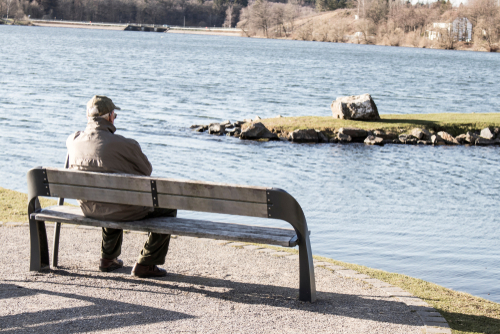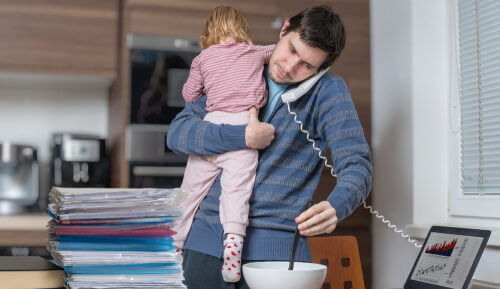
Page contents
- How do I cope with carer loneliness?
- 1. Stay in touch with family and friends
- 2. Speak to other carers
- 3. Remember – there is always someone to talk to
- 4. Carers need to care for themselves as well as others
- 5. If necessary, get professional support
- 6. Go outside
- 7. Try to get enough sleep
- 8. Be kind to yourself
- FAQs
Page contents
- How do I cope with carer loneliness?
- 1. Stay in touch with family and friends
- 2. Speak to other carers
- 3. Remember – there is always someone to talk to
- 4. Carers need to care for themselves as well as others
- 5. If necessary, get professional support
- 6. Go outside
- 7. Try to get enough sleep
- 8. Be kind to yourself
- FAQs
Carer loneliness is a serious issue, with research showing a high percentage of carers report feel lonely, with some experiencing it frequently or always. A Carers UK survey found 81% of carers have felt lonely or socially isolated due to their caring role.
Being a carer for a family member or friend at home can be very lonely as it can be overwhelming and demanding as well as extremely isolating.
How do I cope with carer loneliness?
Everyone is different and can cope with varying levels of isolation. Some people enjoy living with minimal contact with other people, but others may feel incredibly lonely. Loneliness can have a huge impact on mental health and can cause depression, anxiety and increased stress.
Many people struggle with carer loneliness due to their social circle decreasing due to the demands of being a carer. They don’t have the time to socialise any more and some people when they do get time to themselves are too tired to go out and see friends and family.
Below are some tips to help you as a caregiver to cope.
1. Stay in touch with family and friends
Staying in touch with family, friends, and other carers can help to prevent loneliness and improve mental health. It is important to remember that you are not alone and other people you know may be going through the same experiences.
Even if you can’t spend long hours socializing, small moments of connection matter. A quick phone call, a text message, or even a short visit can help you feel less alone. Sometimes, friends may not know how to reach out to you so don’t hesitate to contact them.
Keeping in touch with family and friends will stop you feeling lonely and bring positivity when you are feeling down.
You can even set up regular meet ups or phone calls so it gives you something to look forward to as well.
2. Speak to other carers
Family and friends may not understand what you are going through as a carer and it can be valuable to speak to others who share what you experience.
Support groups can provide a safe space to share experiences, frustrations, and coping strategies. Knowing that others face similar challenges can ease feelings of isolation and provide encouragement.
Carers UK has an online forum and support groups as well as a helpline for information and guidance.
3. Remember – there is always someone to talk to
The Samaritans offers a listening service free from judgement that is available 24 hours a day to anyone feeling alone.
There are many other sources of support available to you if you are struggling to cope. Never hesitate to reach out, there is always someone to talk to.
4. Carers need to care for themselves as well as others
Carers often feel guilty about taking time out for themselves, but rest and personal time are essential. It is important you remember to take care of yourself too.
So remember to make time for yourself and do things that you enjoy.
Taking breaks and finding moments for yourself can give you peace of mind. Whether it is gardening, reading, yoga or other exercise, it can help you recharge your batteries.
Reading a book, gardening, or simply stepping outside for fresh air can boost your mood and resilience. Where possible, consider respite care services or ask trusted friends and family to step in, so you can recharge.
5. If necessary, get professional support
Carer loneliness can lead to depression or anxiety. If you feel overwhelmed by the mental and physical impact of being a carer, speaking with a counsellor or a therapist can provide valuable coping strategies and emotional support. Your well-being is just as important as the health of the person you care for.
6. Go outside
Try to get out and about regularly for some fresh air, whether it is for a walk or spending some time in the garden. It breaks up the day and benefits both you and the person you care for.
7. Try to get enough sleep
It can be difficult to get a good night’s sleep as a carer. But sleep can be invaluable in helping you cope with the emotional, mental and physical demands of being a carer.
Find ways to wind down and avoid screen time before bed. Try reading a book or having a bath instead.
8. Be kind to yourself
Being a carer is not easy and you should not have guilt over not doing enough. You are doing the best you can under the current circumstances.
If you do feel lonely, do reach out for support, make time for yourself, and do try and meet with friends and family so you can ease the weight of isolation.
Remember – looking after your own emotional health helps you continue providing the loving care that your family member or friend relies on.
FAQs
Why do carers often feel lonely?
Many carers feel lonely because their caring responsibilities reduce the time and energy they have for socialising. Research from Carers UK shows that 81% of carers have felt lonely or socially isolated due to their role. The demands of caring can be overwhelming, leading to reduced social contact and emotional isolation.
How can carers cope with loneliness?
Carers can cope with loneliness by staying in touch with family and friends, joining carer support groups, and making time for self-care.
Even small connections, such as phone calls or short visits, can make a big difference. Seeking respite care or professional support can also help carers protect their mental wellbeing.
Where can carers get emotional support?
Carers can access support through organisations such as Carers UK, which offers forums, support groups and a helpline.
The Samaritans also provide a free, 24-hour listening service for anyone feeling alone. Speaking to a GP, counsellor or therapist can also provide valuable emotional support if loneliness becomes overwhelming.

Find home care near you

Expert advice straight to your inbox
Join our growing community for clear, expert guidance on finding, choosing and paying for care at home.



